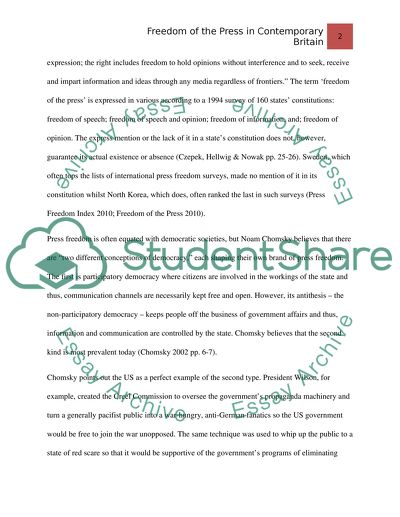Cite this document
(“What does 'Freedom Of The Press' Mean To what extent does it exist in Essay”, n.d.)
Retrieved from https://studentshare.org/environmental-studies/1406847-1-what-does-ychfreedom-of-the-pressyie-mean-to-what-extent-does-it-exist-in-modern-britain
Retrieved from https://studentshare.org/environmental-studies/1406847-1-what-does-ychfreedom-of-the-pressyie-mean-to-what-extent-does-it-exist-in-modern-britain
(What Does 'Freedom Of The Press' Mean To What Extent Does It Exist in Essay)
https://studentshare.org/environmental-studies/1406847-1-what-does-ychfreedom-of-the-pressyie-mean-to-what-extent-does-it-exist-in-modern-britain.
https://studentshare.org/environmental-studies/1406847-1-what-does-ychfreedom-of-the-pressyie-mean-to-what-extent-does-it-exist-in-modern-britain.
“What Does 'Freedom Of The Press' Mean To What Extent Does It Exist in Essay”, n.d. https://studentshare.org/environmental-studies/1406847-1-what-does-ychfreedom-of-the-pressyie-mean-to-what-extent-does-it-exist-in-modern-britain.


